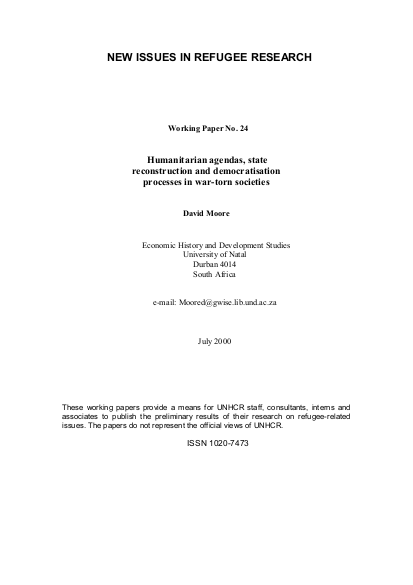
This paper responds to criticisms of humanitarian activities that assert that they harm rather than support processes of democratisation, accountability and other components of “good governance” in societies emerging from “complex political emergencies.” It does this by summarising the emerging critique of the “humanitarian international” (HI) as articulated by Alex de Waal,1 one of the most prominent and polemical proselytisers of the death-knell of humanitarianism.2 He argues that the HI’s processes are negative because they hinder the development of the strong bonds between state and society necessary for the development of democratic good governance. The paper challenges de Waal’s claims. Firstly, the paper positions de Waal’s thesis against current “cosmopolitan liberal” theories of the internationalisation of democracy, whose framework is shared by the HI. It finds that his thesis has some strength at an abstract, theoretical and very generalised level. De Waal’s claim that states are a better locus for democratisation and institution-building processes than international organisations is supported. Secondly, however, the paper goes on to examine the effects of humanitarian action on those in its receipt. This perspective suggests that de Waal’s thesis is too abstract and a priori. It argues that the processes of humanitarian action can inculcate a culture of “stateness” within its subjects. This new culture can (but does not necessarily) lead to outcomes propitious for democracy and “good governance:” an active and reciprocal state-society relationship capable of coping with the ravages of a new world “order” which undermines the very structures idealised by analysts such as de Waal.